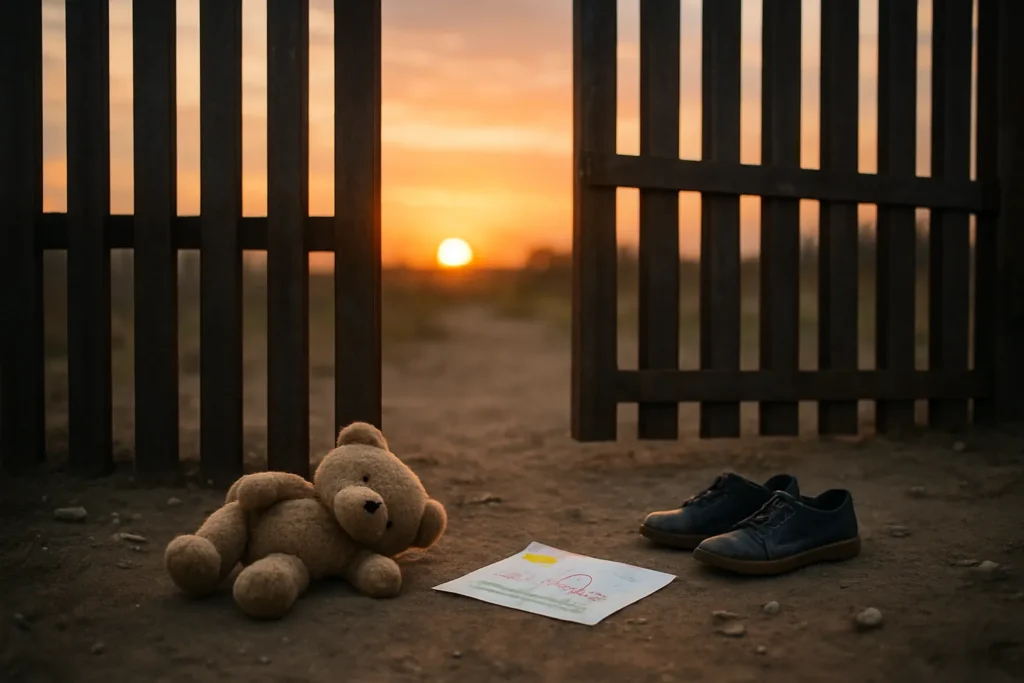When Fast-Tracking Family Reunification Backfires
Imagine arriving in a strange land, frightened and alone, and finding yourself placed in the custody of a complete stranger—someone who, instead of offering sanctuary, exposes you to new dangers. That’s the unwelcome reality facing too many unaccompanied migrant children who have crossed into the United States in recent years. A sweeping investigation by the Department of Homeland Security has brought to light an urgent humanitarian crisis hidden behind America’s border policies: vulnerable kids have been placed not with loving relatives, but with unvetted sponsors whose criminal backgrounds include everything from child sexual exploitation to violent felony offenses.
The roots of this debacle span multiple administrations, but the challenges reached a crescendo under the Biden administration, according to recent DHS disclosures and an ICE welfare initiative launched in February 2025. The core of the problem was a paradoxical impulse: get children out of federal detention as rapidly as possible, thus reducing headlines about kids in cages—but in the rush, essential safeguards were stripped away. The result? Children released into the custody of individuals ICE agents would later discover were convicted felons or, in some cases, directly complicit in child exploitation networks.
Harvard child welfare scholar Dr. Olivia Berman points out the critical balancing act: “Decisions must weigh both the trauma of prolonged detention and the acute, preventable dangers of placing children with unvetted adults. Systemic shortcuts end up endangering the very children politicians claim to protect.”
Systemic Safety Failures and Their Human Toll
Beyond the policy paperwork lies a pattern of heartbreak and exploitation. ICE special agents, conducting hundreds of welfare checks, encountered migrant children living in squalid, unsafe conditions or—more alarmingly—in the care of adults facing active criminal warrants. DHS records, reviewed by NBC News and corroborated by the personal testimony of former Border Patrol Chief Chris Clem, detail cases where sponsors possessed child sexual abuse material or forced minors into illegal labor. In the process, some children vanished entirely, fueling fears of trafficking.
What led to this collapse in oversight? During the rush to decompress crowded holding centers amid surging migrant arrivals, the Biden administration relaxed the biometric and background checks that had been painstakingly imposed in previous years. Progressive advocates and immigration experts alike acknowledge the urgency of moving children out of makeshift detention hubs, but as history has shown with earlier lapses at the Office of Refugee Resettlement, speed without scrutiny leaves the most vulnerable exposed to terrible risks.
A closer look reveals recurring warning signs—many sponsors claimed to be distant relatives without presenting verifiable documentation, or worse, had financial links to professional smuggling rings. DHS admits that some sponsors were literally paid by traffickers to facilitate the handover, turning these children into commodities rather than refugees deserving of protection. It’s a chilling echo of the failures exposed during the Obama years, where similar breakdowns led to national scandal.
“Systemic shortcuts end up endangering the very children politicians claim to protect.” — Dr. Olivia Berman, Harvard
Effective oversight was not simply neglected—it was actively deprioritized in the bureaucratic pursuit of optics. Data from the advocacy group Kids in Need of Defense shows an unmistakable pattern: since 2021, contact has been lost with thousands of migrant children after their placement. NPR investigations have traced at least 85,000 such cases since 2021, each one a potential child at risk of abuse or exploitation.
Accountability, Compassion, and a Path Forward
This is more than a political scandal—it’s a moral test of our nation’s commitment to social justice and collective responsibility. Conservative commentators blame lax border enforcement and accuse progressive policymakers of incentivizing illegal immigration. But deeper analysis exposes the inadequacy of reactive, punitive measures over evidence-driven reforms. Arresting undocumented caretakers or launching high-profile removal sweeps might generate headlines, but does little to change the underlying failures in screening and oversight.
Expert consensus, including renowned sociologist Joanna Suarez and several bipartisan panels, argues strongly for comprehensive reform: empower child welfare authorities to oversee all migrant placements, restore rigorous background and biometric vetting for sponsors, and fund coordinated follow-up to ensure children do not vanish into the shadows. Empathy and vigilance are not mutually exclusive, yet both are sorely needed.
We can look to other moments for inspiration: The foster care crises of the 1970s, the refugee sponsorship reforms after the Vietnam War, both reminded a divided America that a society’s character is measured by how it protects the most vulnerable. Demand for better protocols comes not just from watchdog groups, but from within diverse faith congregations, pediatricians, and public school systems—a broad moral coalition insisting that these children deserve more than triage and rhetoric.
What might solutions look like if we put child welfare, not bureaucratic speed or hardline optics, at the center? A network of vetted, supervised sponsors, with robust support for legal services, trauma counseling, and civic integration. Transparency at every stage—oversight committees unafraid to hold leadership accountable, and funding redirected from punitive raids to family placement review.
The tragic missteps under the Biden administration are sobering, but not insurmountable. America’s progressive tradition calls for honest reckoning, not defensiveness or finger-pointing. The time to act with compassion matched by competence is now. Our national promise—to welcome the tired, the poor, the huddled masses—means little if we abandon their children in the hands of abusers. The choice, and the challenge, lies before us all.

